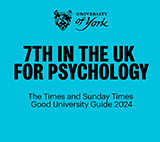
Analysing the way children sleep could help us to understand autism
Posted on 29 March 2017
Department of Psychology lecturer Henderson, Lisa writes in The Conversation about how analysing the way children sleep could help us to understand autism.
Specialising in the development and disorders of language, Lisa writes that as well as being vital for getting through the day, sleep is well known to play an important part in the process of memory making – sleep helps us take newly formed “fragile memories” and make them “robust”. Through sleep, our brains hit the “save” button, allowing us to transfer memories to a long-term storage system.
Research from the Sleep Language and Memory (SLAM) lab at the University of York has focused on the relationship between sleep and language learning. This research has shown that sleep plays a role in strengthening our memories for newly learned words – for both adults and children.
"We found that people who get more deep sleep show bigger improvements in their memory for new words after sleep. And that going to sleep after learning new words also allows those words to be embedded into the brain’s mental dictionary – meaning these words begin to behave like words we already know," she writes.
But outside of learning new words, this research could also help to better understand developmental disorders. This is because children with autism spectrum disorder (ASD), attention deficit hyperactivity disorder (ADHD) and dyslexia often have sleep problems and as part of our research, we are looking at how these sleep problems impact on children’s learning.
Follow this link to read the full article in The Conversation.
